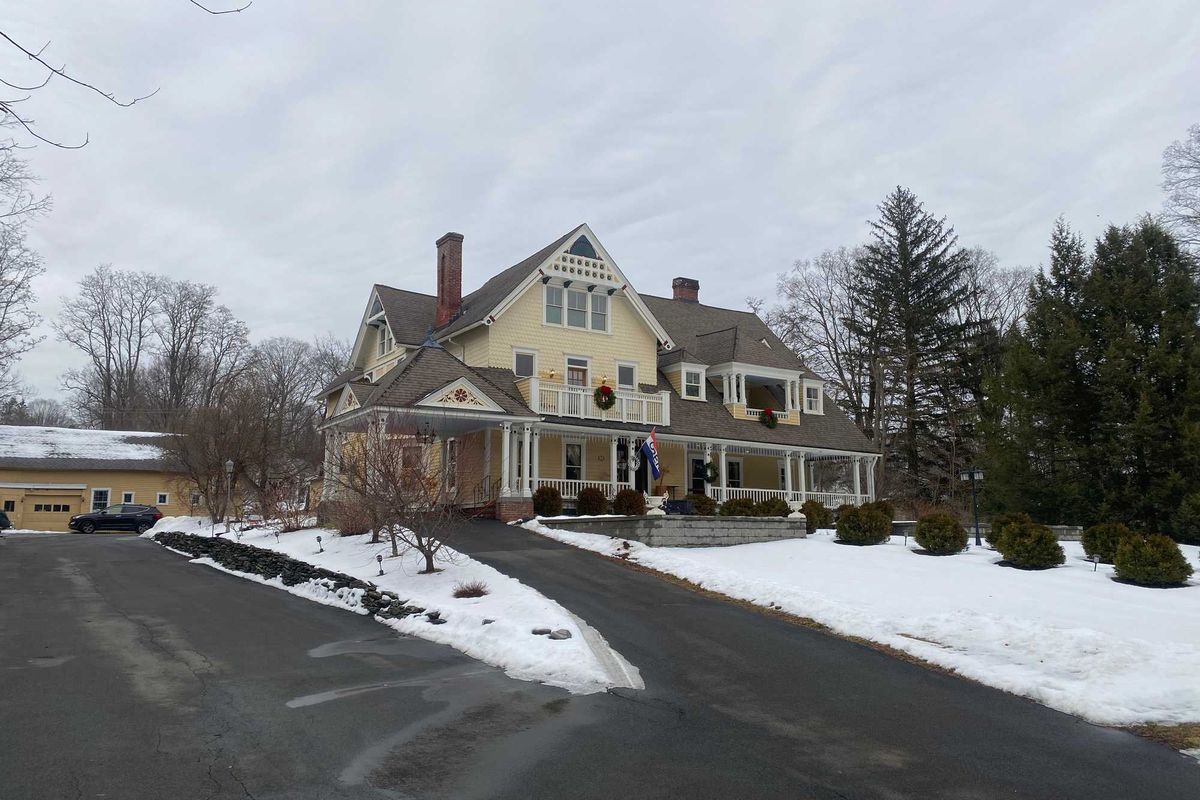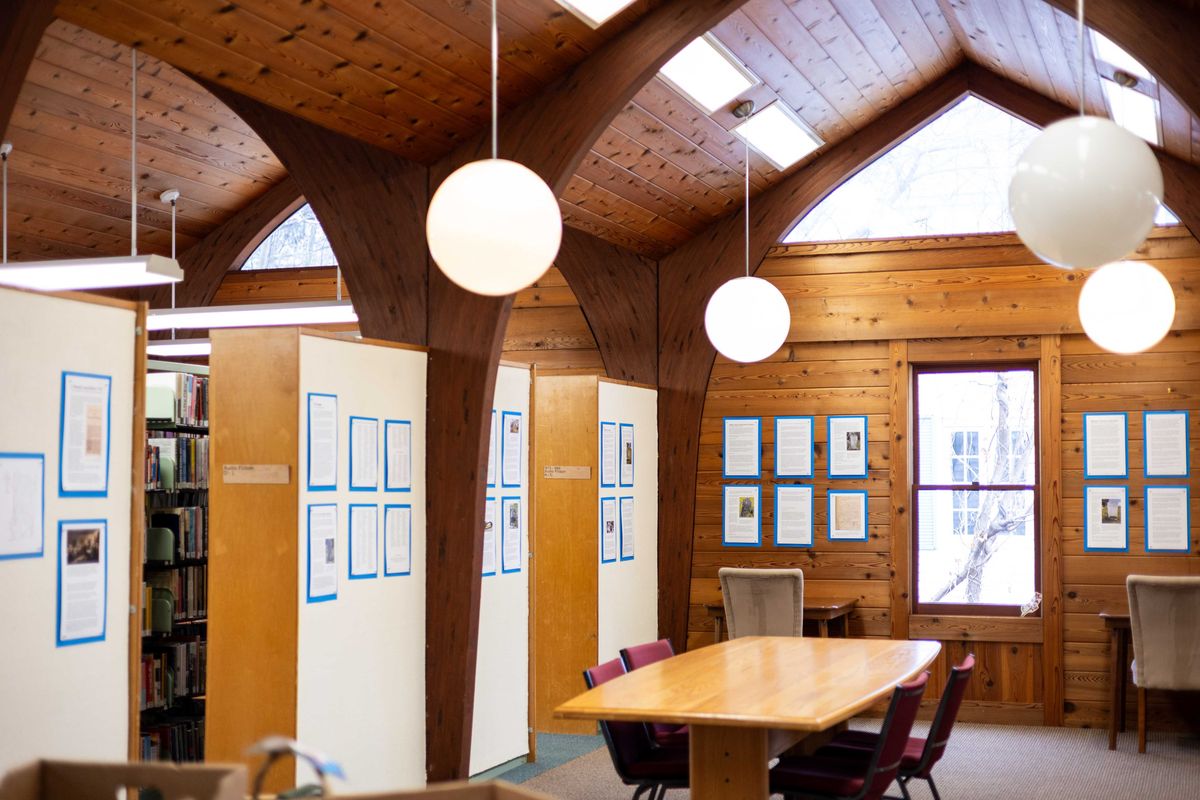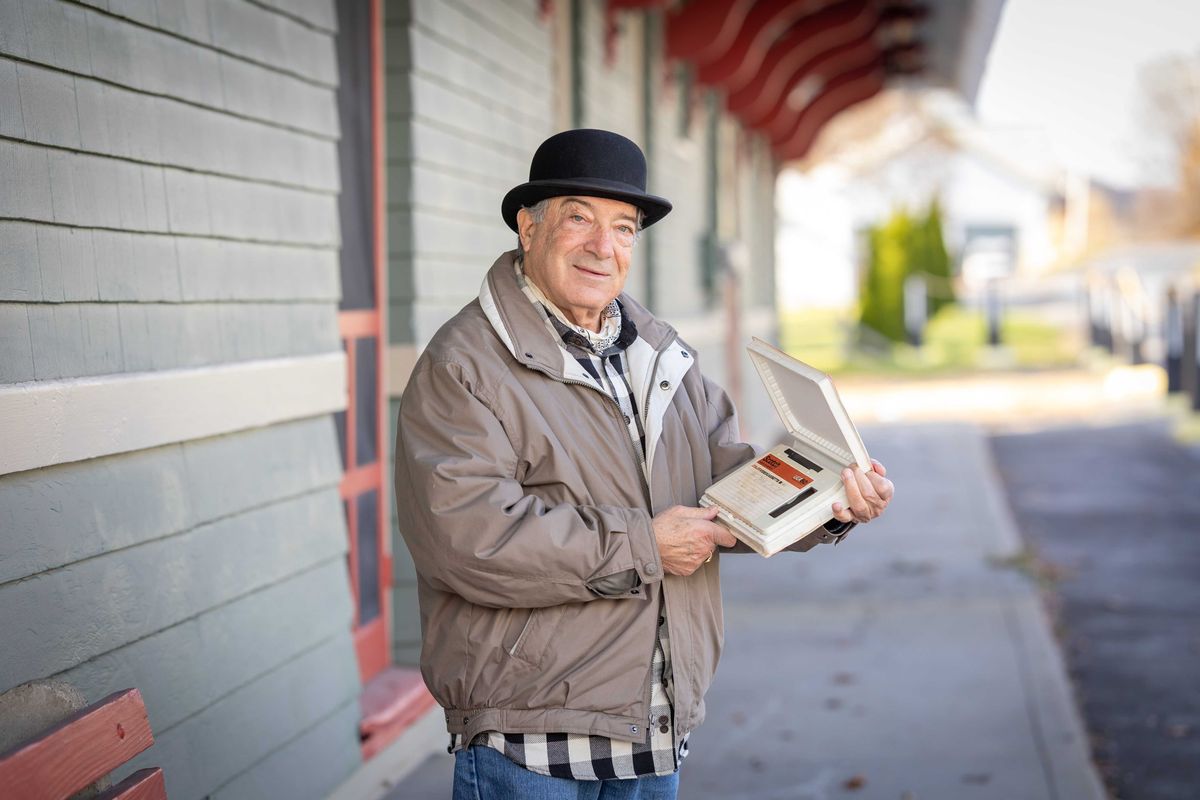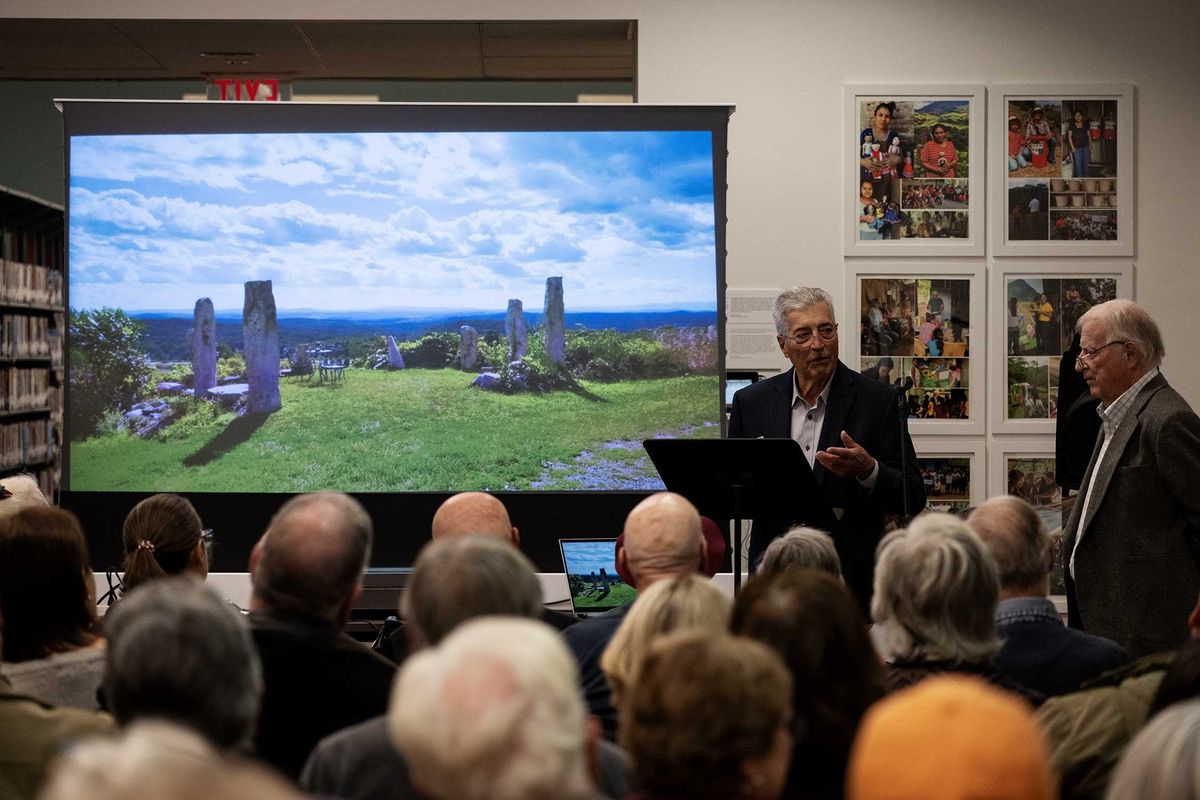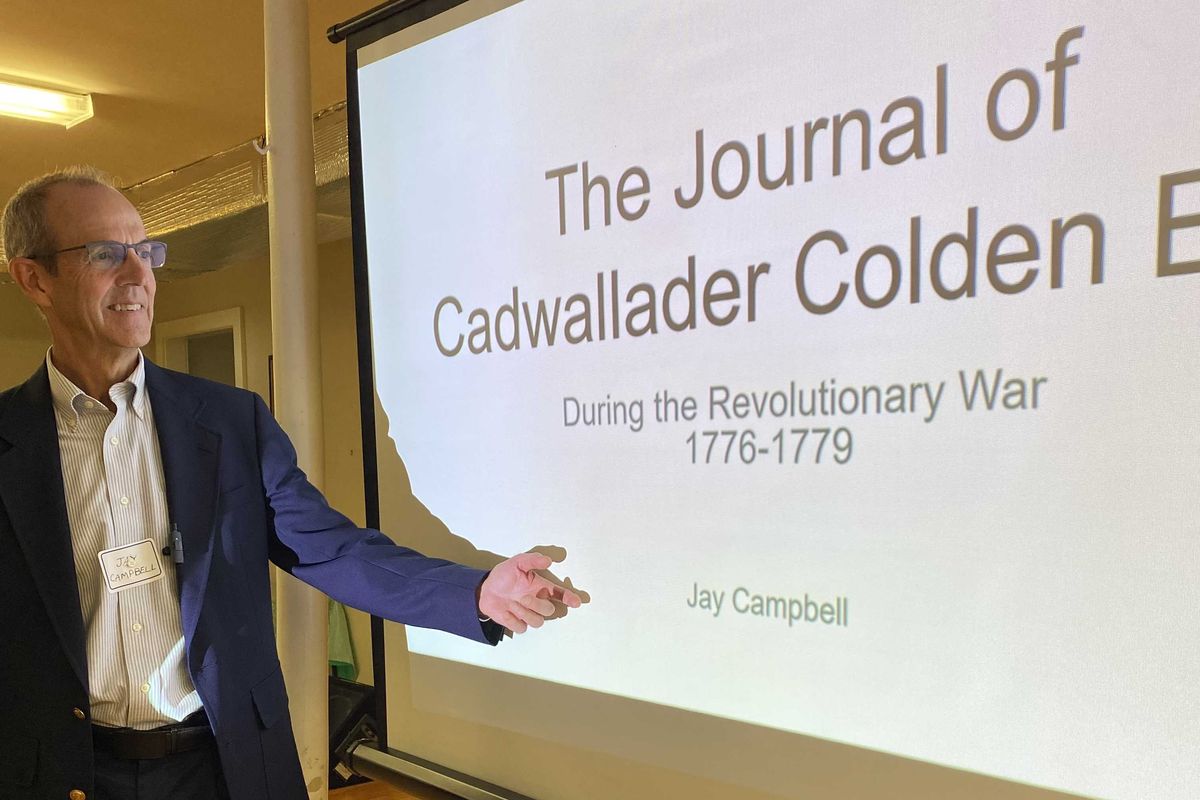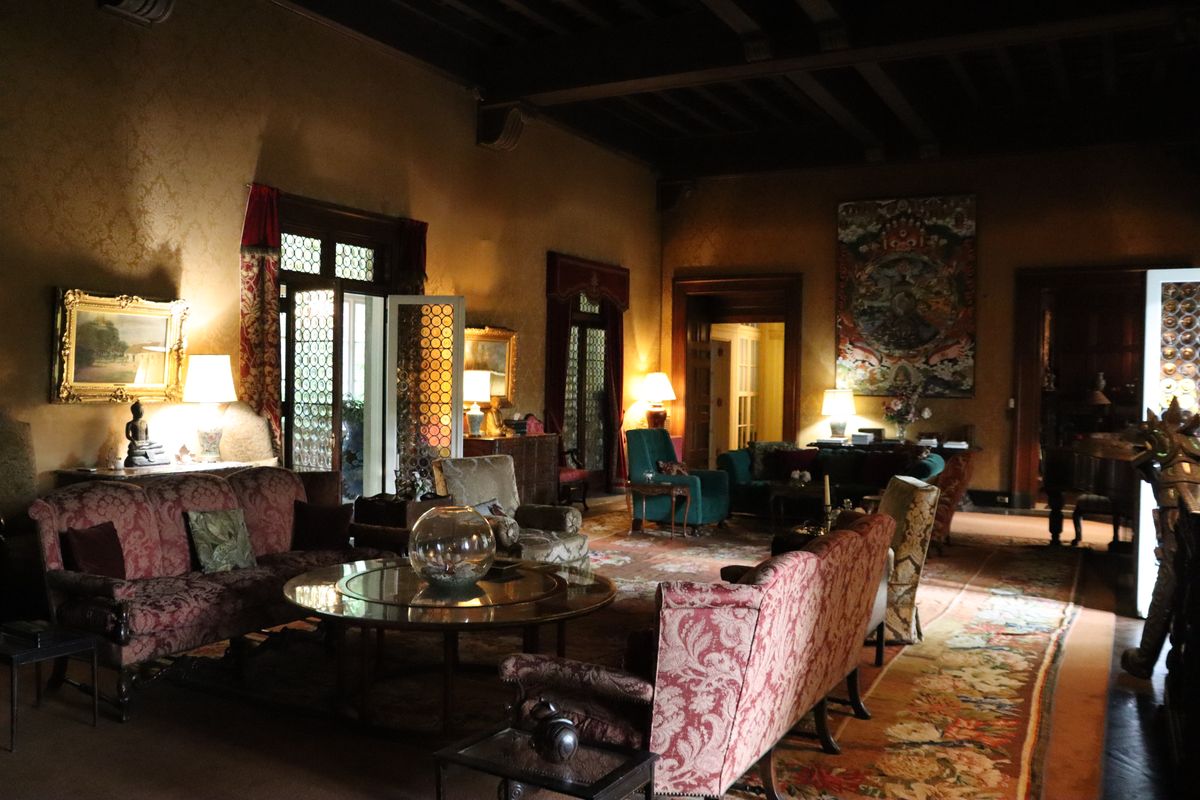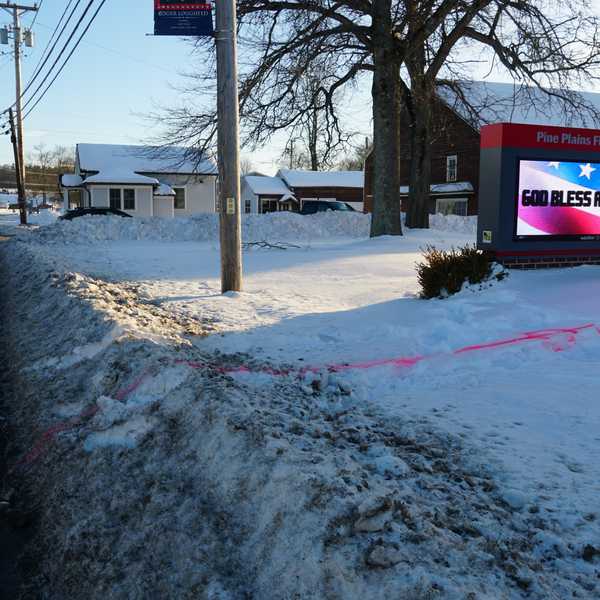‘Hidden Treasures of the Hudson Valley:’ North East Historical Society Hosts Annual Meeting
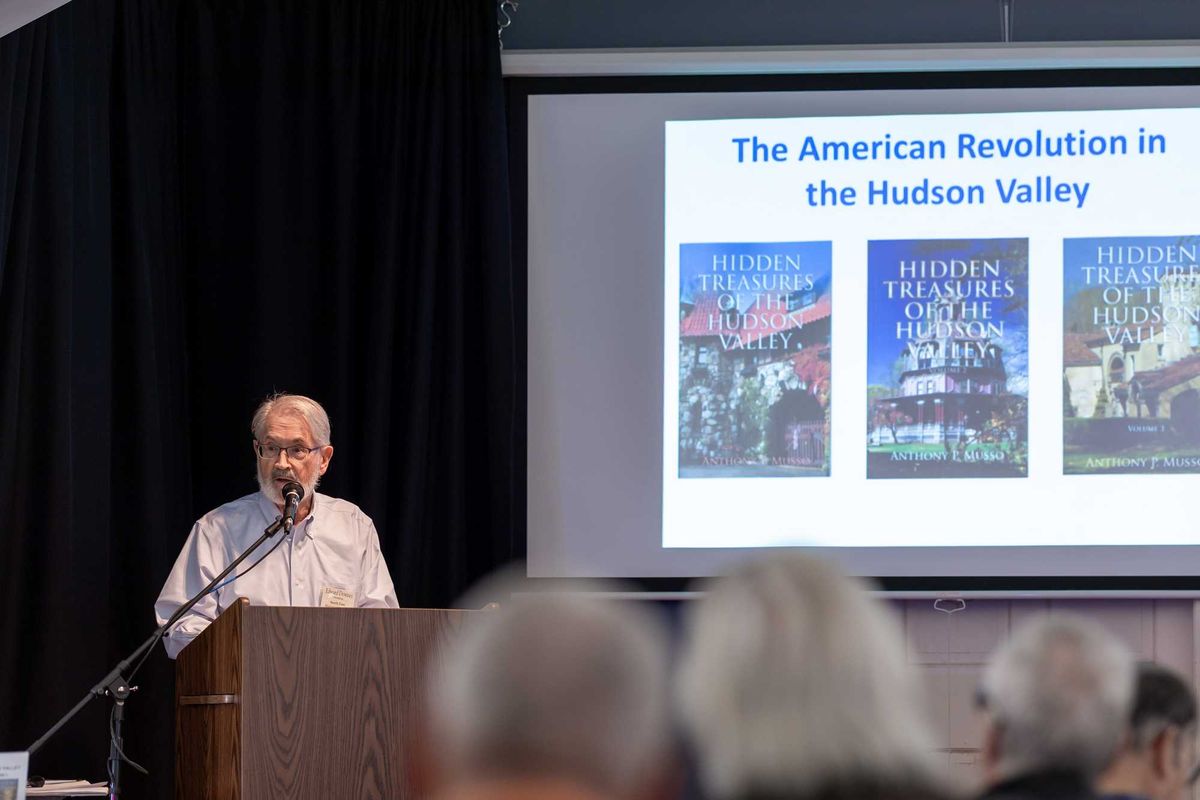
North East Historical Society President Ed Downey introduced historian Anthony Musso for his talk on low-cost historical sites across the Hudson Valley before the annual meeting of the historical society at the NorthEast-Millerton Library Annex on Saturday, Nov. 15.
Photo by Aly Morrissey
